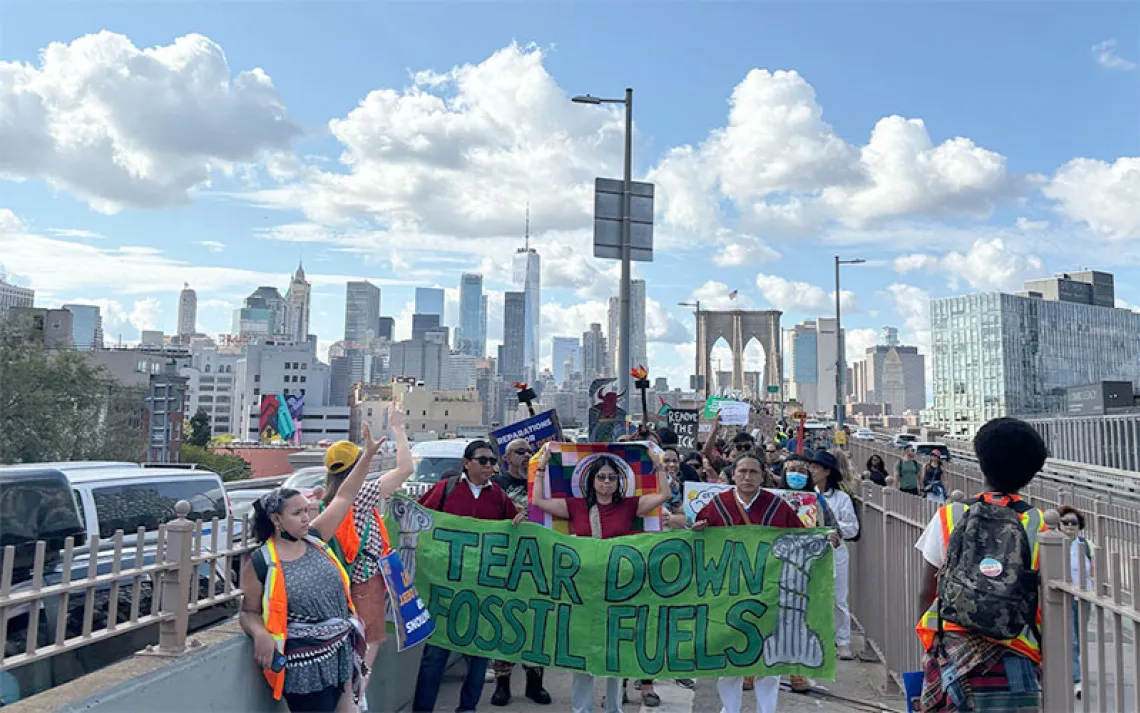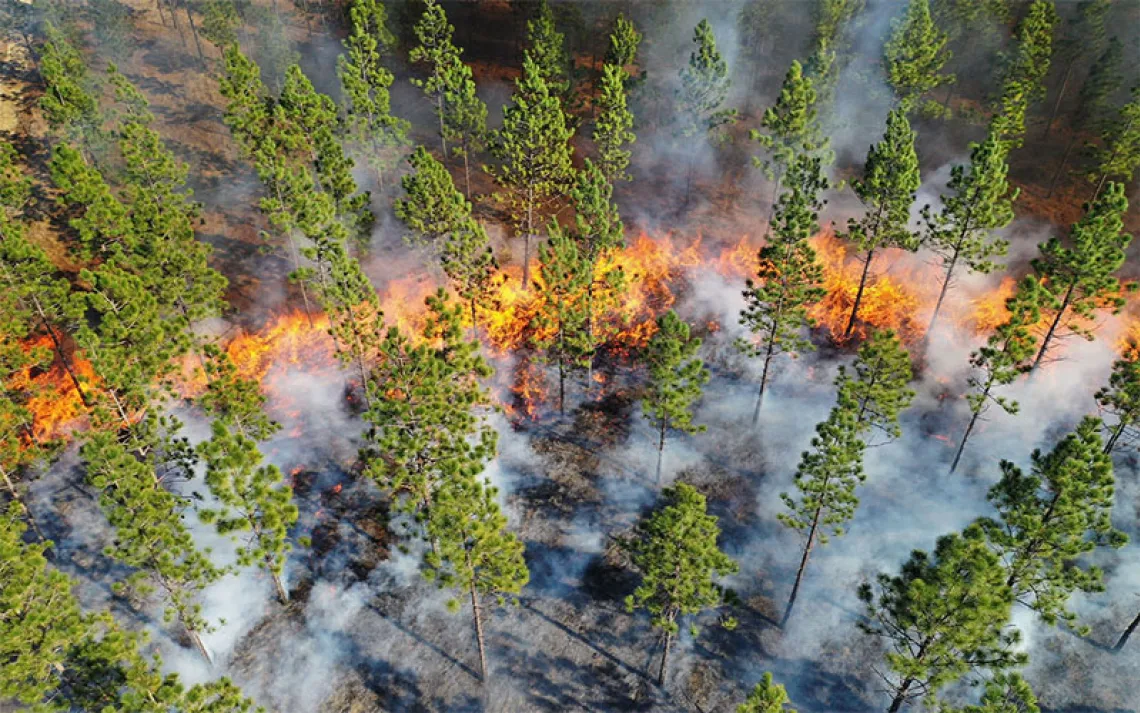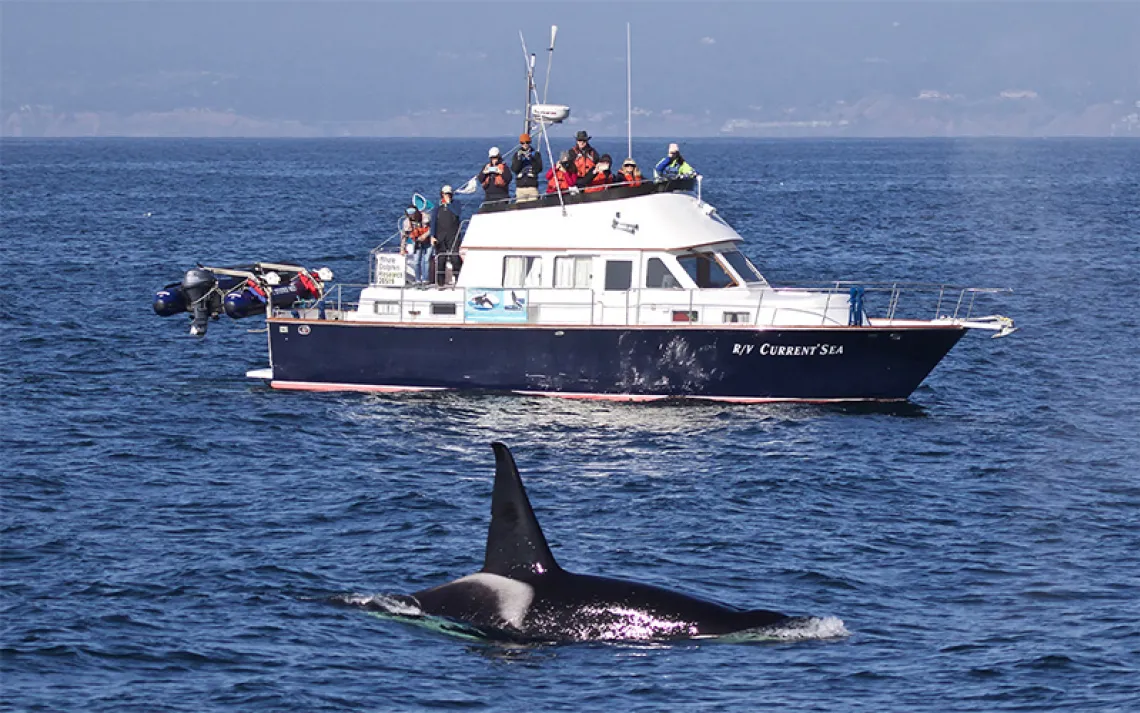From the Executive Director: To Change Everything, It Takes Everyone
The Sierra Club is part of a larger ecosystem of progressive change-makers

Illustration by Daniel Downey

Since January, federal policymakers have been focused on environmental issues—and not in a good way. The EPA is under attack by its own administrator, Scott Pruitt, who questions the science of global climate change. Fossil fuel boosters roam the White House. The Republican leadership in Congress is doing the bidding of polluters as it rolls back stream protections and green-lights greater emissions from fracking. In response, the Sierra Club has shifted into high gear. Never before have we faced so many urgent challenges at the same time.
Some people wonder why the Sierra Club doesn't limit its advocacy to conservation and environmental issues. Is it really our place, they ask, to take a stand on racism, women's reproductive rights, immigration, and voting rights? When we speak out in support of Black Lives Matter or Planned Parenthood, does it compromise our effectiveness as environmental advocates?

Sign up to receive Sierra News & Views
Get articles like this one sent directly to your inbox weekly.
With this action you affirm you want to receive Sierra Club communications and may vote on policy designated by the Sierra Club Board.
The Sierra Club is a volunteer-driven, democratic organization. Decisions about what issues to support are made by our 15-person board of directors—elected by our members—and such choices are not made lightly. The board and I are convinced that if the Sierra Club ignored "nonenvironmental" issues, our mission of protecting the environment would be far more difficult, if not impossible.
Think about this classic insight of John Muir's, one of the foundational principles of ecology: "When we try to pick out anything by itself, we find it hitched to everything else in the universe." We don't want to be the treehuggers who don't see the whole forest. And by forest, I don't just mean the rest of the trees—I mean the whole ecosystem, from owls to epiphytes.
The Sierra Club is part of a network of progressive change-makers, including communities of color, advocates for women's rights, scientists, immigrants, Muslims, Native Americans, LGBTQ individuals, union workers, and many more. Just as we can't protect the forest by focusing only on the trees, we can't defend the environment by shutting ourselves up in a big, green box labeled "environmental issues."
When we look at the political ecosystem with the eyes of an ecologist, it becomes easy to spot the connections between environmental issues and other social problems. The same economic logic that drives corporations to cut costs by paying poverty wages also drives them to dump coal-mine waste into streams. When people of color are systematically denied the right to vote, or when congressional districts are gerrymandered into single-party fiefdoms, the corrosive effect on our democracy works to the advantage of wealthy polluters. When border walls are built to keep people out, wildlife is shut out, too. And every time a fossil fuel power plant is built in or near an impoverished community, it's not only a terrible injustice but also a lost opportunity for clean energy.
When we recognize these connections, we see that the Sierra Club is stronger when we support our natural allies and resist together. So you can expect the Sierra Club to keep stepping up, speaking out, and showing up to support our allies in the movement to resist Donald Trump. And yes, that is in addition to our traditional work of protecting wild places and getting people outdoors. We don't see the extra work as a burden. We see it as a way to make our efforts more effective and our world more just.
Beginning with Henry David Thoreau (an antislavery activist as much as he was a wilderness-loving naturalist), the environmental movement was founded on faith in the distinction between right and wrong. Injustice is clearly wrong—and so is indifference. To quote Martin Luther King Jr., "In the end, we will remember not the words of our enemies, but the silence of our friends." We will not be silent.
Photo by Henrik Kam
 The Magazine of The Sierra Club
The Magazine of The Sierra Club



